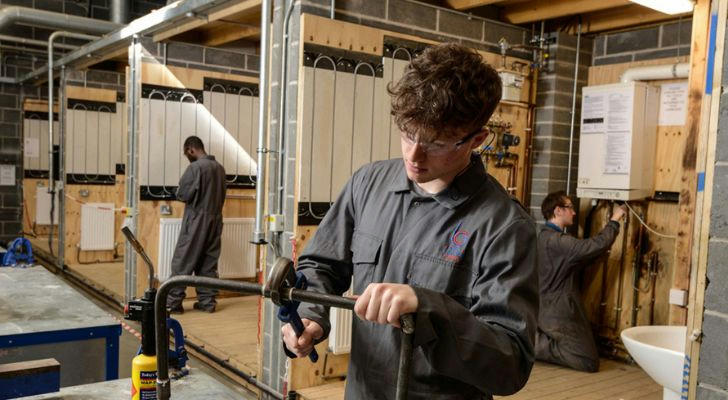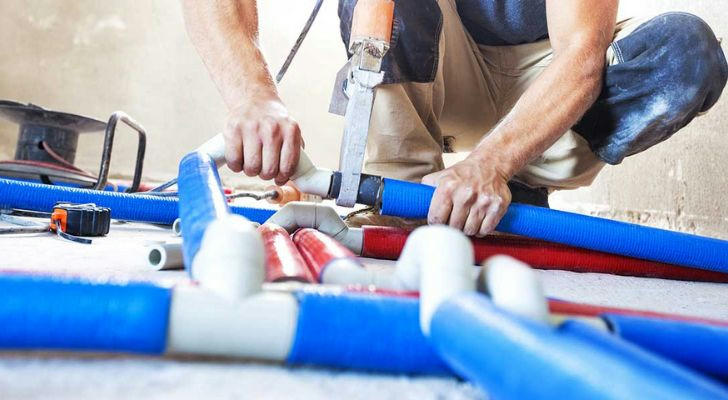Flexible Plumbing Courses for Working Adults and Career Changers
Flexible plumbing courses are opening new doors for working adults and individuals looking to switch careers. With rising demand for skilled tradespeople and a shortage of licensed plumbers, this is an ideal time to step into the industry. Whether you’re juggling a full-time job or exploring a second career, today’s flexible learning formats make it possible to gain practical skills without putting your life on hold.

Why Plumbing Is a Smart Career Move
Plumbing isn’t just about fixing leaks—it’s about building essential systems that keep homes, businesses, and public facilities running. As older tradespeople retire and infrastructure ages, the demand for new plumbers continues to grow. According to the U.S. Bureau of Labor Statistics, employment of plumbers is projected to grow by 2% from 2022 to 2032, with tens of thousands of new jobs opening due to replacement needs.
Benefits of entering the plumbing trade include:
- Consistent demand across residential and commercial sectors
- High earning potential, especially after certification
- Opportunities for self-employment or business ownership
- Hands-on work that’s never boring
Flexible Learning Options That Fit Your Schedule
For adults with busy lives, flexible training is essential. Many plumbing schools and trade institutions now offer multiple learning formats, including:
- Evening and weekend classes
- Hybrid models with online theory + in-person workshops
- Self-paced online programs with live instructor support
- Fast-track programs for career changers with transferable skills
Some programs even offer modular training, allowing you to complete units over time based on your availability. These options make it possible to balance education with a full-time job or family responsibilities.
What You’ll Learn in a Plumbing Course
Plumbing courses are designed to prepare you for both entry-level work and licensing exams. While course structure varies, most cover the following core areas:
- Plumbing systems and design (water, waste, gas)
- Pipefitting and installation techniques
- Safety standards and building codes
- Blueprint reading and technical math
- Tool use and maintenance
- Customer service and workplace communication
Programs often include hands-on practical sessions, either in a lab setting or as part of a supervised apprenticeship. Some schools also provide exam preparation for licensing, giving you a head start toward becoming a certified plumber.
Entry Requirements and Who Can Apply
One of the strengths of plumbing courses is accessibility. Many programs welcome applicants without prior trade experience or formal qualifications. In most cases, you’ll need:
- A high school diploma or equivalent (GED)
- Basic math and reading comprehension
- A willingness to do physical, hands-on work
- Legal right to work in the country (for apprenticeship placements)
Career changers coming from fields like construction, mechanical maintenance, or customer service may even be eligible for accelerated pathways.
Financial Support and Paid Training Options
Training doesn’t always have to come out of your own pocket. Depending on your location, you may qualify for:
- Government-backed training subsidies
- Workforce retraining grants
- Apprenticeships with paid on-the-job training
- Employer-sponsored upskilling programs
These options can greatly reduce your upfront costs—and in some cases, allow you to earn while you learn. Apprenticeships in particular are a popular route, offering structured mentorship, regular wages, and job placement at the end of training.
After Certification: Job Outlook and Opportunities
Once you’ve completed your training and earned the required license or certification, you’ll be ready to join the workforce. Newly trained plumbers can expect to work in:
- Residential plumbing and repair
- Commercial building systems
- New construction and remodeling
- Municipal and industrial maintenance
Entry-level plumbers often start as assistants or apprentices, but with experience, many move into supervisory roles, niche specializations, or even open their own businesses. According to industry sources, experienced plumbers in the U.S. and UK can earn $50,000 to $80,000 annually, with higher earnings for those with advanced skills or business ownership.

Is This the Right Path for You?
Plumbing is ideal for individuals who enjoy problem-solving, physical activity, and tangible results. If you’re:
- Looking to change careers without spending years in school
- Interested in a well-paying, hands-on job
- Seeking a role that offers long-term stability
- Willing to commit to continuous learning and certification
Then plumbing might be a perfect fit. And with flexible course formats now widely available, there's never been a better time to make the switch.
